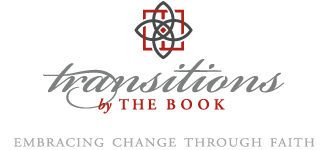Several days ago, Janet and I drove up to the Chicago area so that Janet and her sister, Debbie, could fly out to Williamsburg and spend the weekend together with Nancy, their youngest sister, on the anniversary of their mother’s birthday. For years, the three girls have made it a point to get together several times a year and the fall trip is always out east. They are pretty much inseparable when they get together and all three of the husbands know that we aren’t included in the festivities of the sisters’ weekend.
Not that anything special goes on – they get coffee, attend a movie or two, remember their mother’s memory and generally have a great time together. Meantime, I am staying with my brother-in-law, Randy, and I will head home tomorrow after we pick up Janet and Deb at the airport as they return from Williamsburg. Randy and I have pretty much done the same things the girls are doing – catching up, having dinner together, running miscellaneous guy type errands – and doing the kinds of things that aren’t of any interest to our wives.
It has been great to get away and just chill out for several days. But on the drive up here from Carmel, Janet and I saw a car on the highway that had a rather strange plate. It read MRK1126 and, of course, I thought the reference was to the Bible verse Mark 11:26.
Now before you go running for your Bible to look this verse up in the NIV, please don’t bother… that’s because it isn’t in the NIV Bible. Yep… you read correctly… modern editions of the Bible don’t have a Mark 11:26 verse to look up! So what’s this all about?
Well, there is quite a debate about all this. It is generally recognized that the King James version of the Bible is the most accurate and faithful to the original manuscripts. It has its root translation from the Greek in what is traditionally referred to as the Textus Receptus (the TR or received text). In fact, when I was in seminary, all my work was done in the KJV or the Greek TR so I am rather familiar with these versions.
And… the TR has never gone through revisions as many of the other Greek translations have – for example, the United Bible Society (UBS) Greek that has had numerous revisions since it was first published. So which one is right? Well, that depends on who you choose to believe…
Conservative scholars still put their faith in the Textus Receptus and the King James Version that was translated into English in 1611. But other scholars believe that with all the additional manuscripts that have been uncovered in recent years, there is evidence, in their opinion, that Mark 11:26 was not part of the Canon of Scripture. In other words, it may have been added later – perhaps by a scribe trying to tie Mark to Matthew. That’s because some of the more recently discovered documents do not show Mark 11:26 listed in their Greek manuscripts.
Also, the NIV is a phrase for phrase translation rather than a word for word literal translation of the Bible, so biblical scholars are deeply divided on the exact translation that should be used. Additionally, the NIV is a more ecumenical translation and so many controversial verses are left out for the sake of bringing people together and not dividing the faith over seemingly minor variances.
But diehard conservative theologians stick to the KJV and the literal word for word translation of the Scripture. Just as an aside, the English Standard Version (ESV) and The Message (a more contemporary paraphrase of the Bible in modern language) do not recognize the verse either. In fact, there are hundreds of variances in the manuscripts currently being studied. And for those of you who like the New American Standard Bible (NASB), you will find Mark 11:26 there. By the way, the NASB is a word for word translation, similar to the KJV.
So by now you can guess our verse this evening, from the King James. The book of Mark is thought to be the first of the Gospels to be written and along with the other Gospels, has many controversial verses that have been omitted or “sanitized” in the NIV. Mark tells us, in Mark 11:26, “But if ye do not forgive, neither will your Father which is in heaven forgive your trespasses.” Of course, this is a controversial verse. Who wants to hear that God won’t forgive us? Aren’t we saved by faith in Jesus?
Well, I think the point of the verse is that we are called to forgive others because of our faith in Jesus. After all, Jesus died for all our sins and we have already been forgiven. It is also probably a reference to Matthew 6:35 that introduces us to the Lord’s prayer – a prayer that references the forgiveness of others as we ask for forgiveness from God. The death of Jesus on the cross was a one-time sacrifice that covers our sins for all time.
My encouragement is that Jesus expects us to forgive others for their trespasses just as we expect grace for our trespasses. My prayer tonight is that we can all be a little more tolerant and understanding – especially as we enter the period of Thanksgiving and then celebrate the birth of our Savior. Isn’t practicing forgiveness the best way to live? Have a great day in the Lord, grace and peace…
